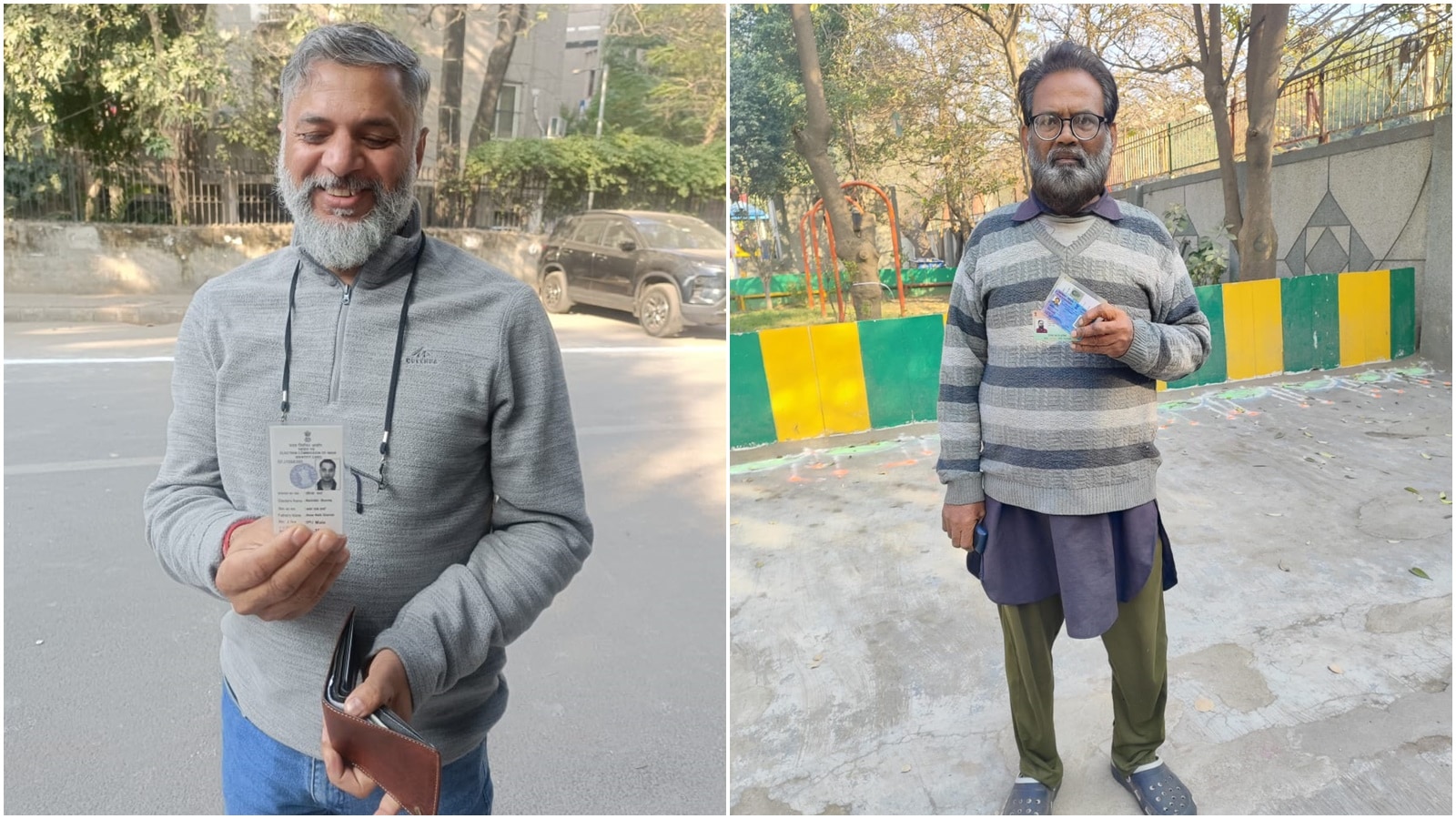 |
|
The Delhi Assembly election 2025 has been marred by widespread reports of voters finding their names missing from the electoral rolls. This issue, highlighted by numerous accounts from affected citizens, has cast a shadow over the democratic process and raised serious concerns about the integrity of the voter registration system. The experiences of individuals like Azhar Abbas Khan, a resident of Rajouri Garden since 1989, illustrate the scale of the problem. Despite a long history of voting in the constituency, Khan found his name deleted from the list, attributing the issue to a change of address. This highlights a critical flaw in the system – the lack of effective communication and assistance for voters navigating address changes. The fact that his son's name was also deleted underscores the systemic nature of this error, suggesting a broader failure in the updating and maintenance of the voter database.
Khan's story intertwines with his observations about local governance. His comments on the unaddressed hygiene issues and waterlogging in his area, despite some improvements undertaken by the local MLA, serve as a reminder that the right to vote is deeply intertwined with the larger context of citizen engagement and accountability. This underscores the need for transparent and responsive governance that addresses the needs and concerns of the electorate. The case of Narinder Sharma, another voter who discovered his name missing despite voting since 2010 and filing an online complaint, reinforces the systemic nature of the problem. Sharma's frustration highlights the lack of proactive communication from the Election Commission, which should have notified voters about potential deletions from the rolls. The fact that Sharma’s wife's name remained on the list, while his did not, indicates a lack of consistency and internal control within the voter database.
The contrast between Khan and Sharma's experiences and that of Deboo Singh, a 74-year-old who travelled from Bihar to cast his vote despite having shifted out of Delhi three years ago, underscores the varying levels of access and engagement with the electoral process. While Singh's successful voting highlights the ability of some to navigate the system, the broader pattern suggests a significant problem requiring immediate attention. The fact that Singh had voted consistently for the BJP for two decades also highlights the commitment of some voters to actively participate in the democratic process, despite systemic challenges. His willingness to travel from Bihar to vote emphasizes the importance of the franchise for many citizens.
The issue of missing names from voter lists raises concerns about several key aspects of the electoral process. Firstly, it directly undermines the fundamental right to vote, a cornerstone of any democratic society. The inability of eligible citizens to participate in elections due to administrative errors is a serious matter that requires immediate corrective action. Secondly, the lack of efficient communication and proactive measures by the Election Commission to inform voters of potential issues erodes public trust in the electoral system. The lack of a robust system to update and maintain voter data undermines the fairness and legitimacy of the election. Lastly, the issue raises concerns about the accuracy and integrity of the voter database itself. The deletion of names, without proper notification or explanation, suggests flaws in the data management practices and potentially errors in the process of updating records.
Addressing this situation requires a multi-pronged approach. The Election Commission needs to undertake a comprehensive review of its voter registration and update procedures. This should include stricter quality control measures to prevent errors in data entry and maintenance. More importantly, a robust system for proactively informing voters about any changes or potential issues related to their registration is crucial. Clear communication channels, including SMS alerts and email notifications, must be established to ensure that eligible voters are aware of their status and can take steps to resolve any issues. Furthermore, accessible channels for redressal of complaints and grievances, including easily accessible online platforms and physical locations, are essential. This will allow voters to quickly resolve any problems they face with their voter registration and ensure that everyone has the opportunity to exercise their right to vote.
The overarching concern is the potential impact of these issues on the democratic process. When a significant number of eligible voters are prevented from casting their ballots due to administrative errors, the legitimacy and fairness of the election are compromised. This can lead to decreased public trust in the electoral system and potentially discourage voter participation. A robust and transparent electoral system is essential for a healthy democracy, and ensuring accurate and up-to-date voter lists is a critical component of achieving this goal. The Election Commission must take decisive action to address these issues and restore public confidence in the fairness and integrity of the upcoming Delhi Assembly elections.
